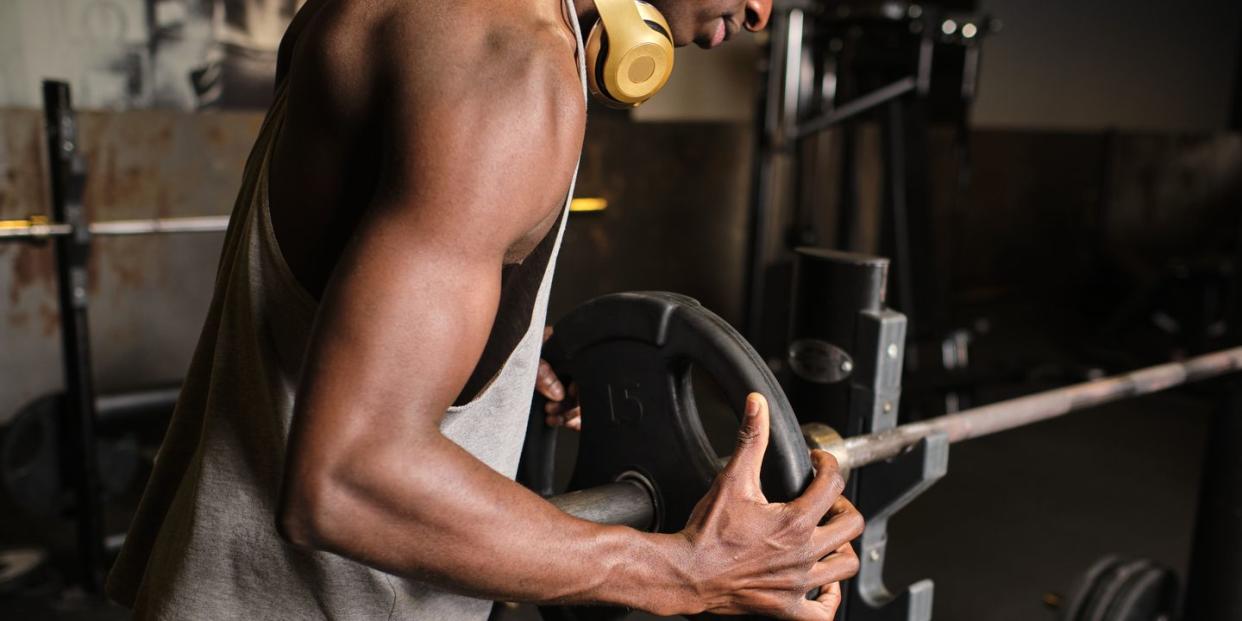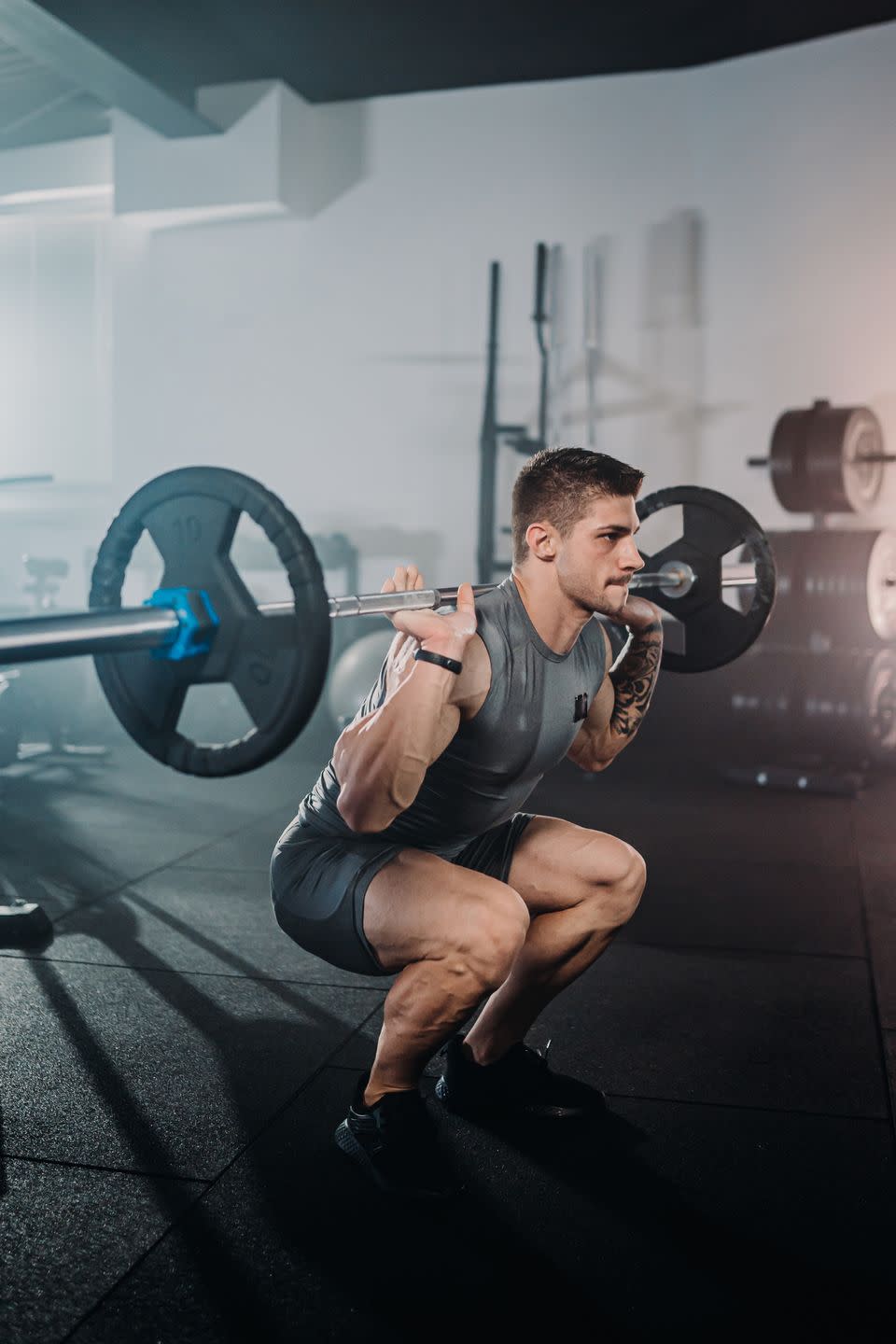Can You Get Bigger Without Lifting Heavier?

In order to build muscle and gain strength, it's unwise to programme hop between new workouts we see online each week – nor should we randomly chop and change exercises each day. Instead, it's best to focus on the main moves and maintain consistency with your programme to achieve that coveted progressive overload. But when exercises start to get easier over time, is it best to lift heavier or add more reps to gain more muscle?
Researchers in a study published by PeerJ set out to find out what exactly happens when there is a focus on increasing reps versus load to facilitate progressive overload.
For the uninitiated, progressive overload means to adjust variables over time to increase demand on the muscles and cause them to adapt. For example, you lift weights, they feel easier, you increase the weights to challenge the muscle more, and then they adapt. Typically, many lifter's first move is to take the weight up, but this study compares increased reps versus increased weight to see their effects on muscular growth.
In this study, 43 participants with at least one year of consistent lower body resistance training experience were randomly assigned to one of two training programmes:
Group 1: Increasing load while keeping repetition range constant.
Group 2: Increasing repetitions while keeping load constant.

For two training sessions per week over eight weeks, participants performed four sets of back squats, leg extensions, straight leg calf raises and seated calf raises. The researchers analysed the effects of these programmes on lower body muscle hypertrophy, strength and endurance. They assessed one rep max of the Smith machine squat, muscular endurance in the leg extension, jump height, and muscle thickness along the quadriceps and calf muscles. Overall, they found:
No notable differences found across outcomes between the two groups.
Rectus femoris (one of the quad muscles) growth slightly favoured increasing reps, but overall both groups gained muscle.
Strength increases slightly favoured increasing weight, but overall both groups gained strength.
They concluded that increasing repetitions and load both appear to be good strategies for enhancing muscular adaptations over an eight week training cycle. They added that this could provide us with another promising approach to programming resistance training.
Increase Weight vs Reps for Muscle Growth
The conclusion of this study means that if we continuously feel compelled to reach for heavier weights when sets get easier, we could also see muscular gains from increasing reps. Increasing reps over load could have benefits for a variety of reasons:
Less need for additional equipment.
Reduced risk of injury.
Reduced impact on joints.
Easier to execute on single joint exercises (e.g. bicep curls).
This is echoed in another study published by the Journal of Strength and Conditioning Research, comparing high reps with lower weight and lower reps with higher weight. For strength gains, the subjects using higher weights and lower reps saw the most benefit. However, both groups' muscle size results were similar, further encouraging us to not sweat it over increasing reps versus weight for muscle gain, as long as we implement progressive overload and work to a challenging level of intensity on a consistent basis.
Both methods of increasing intensity can therefore help you build muscle. Make sure you individualise your choice to suit your own preferences, needs and exercise selection. A mix of both approaches is usually ideal to get the best of both worlds in a well rounded programme to see the results you want.
You Might Also Like


